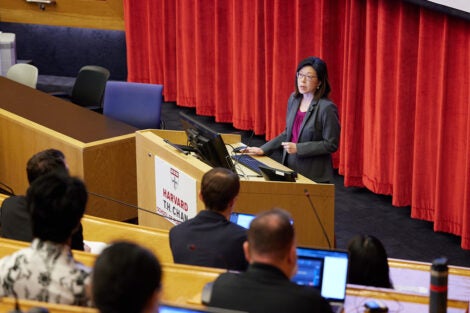The JBL Center supports cutting edge biological, physical and population-based epidemiological research to understand, interpret, and estimate the health effects of radiation that pave the way for effective preventive and therapeutic strategies. A primary focus is on understanding fundamental interactions of ionizing radiation with molecules, cells, and organisms. Major topics being researched include the roles of p53 signaling, DNA repair and cell death in responses to ionizing radiation. Our radiation biology research provides molecular and mechanistic insights for population-based studies of radiation epidemiology, exposure/risk assessment and health outcomes.
Today a great deal is known about the cellular response to “targeted” DNA damage, including relevant DNA repair pathways and signaling mechanisms executing cell death or survival programs in response to radiation. It is also known that DNA is not the only target, as irradiating the cytoplasm outside of the nucleus can also lead to radiation-induced genome instability. Much less is known about cellular homeostatic mechanisms governing stress resistance and how they participate in adaptation to future stressors, particularly in the setting of chronic low-dose stress. Furthermore, the role of the immune system in response to radiation damage is poorly understood, as it can participate both in protection from tumorigenesis through immune surveillance, but also contribute to an inflammatory, tumor-promoting environment. Finally, while it is clear that energy metabolism is intricately linked to stress resistance and declines with age, we still do not understand how these processes are interconnected or how they can be manipulated.
In our vision of the future of radiobiology at the JBL Center, we propose to use acute and chronic radiation as a means to understand underlying mechanisms of cellular and organismal stress responses. Our challenge will be to understand these mechanisms in detail so that we can predict effects of genetic and environmental differences between people on their relative risk or benefit from radiation exposure, be it radiotherapy or a CT scan. To this end, we believe that critical areas of basic research must include cellular defenses against oxidative and proteotoxic stress, diet, inflammation, energy metabolism and transcriptional networks that facilitate adaptations to stress.
